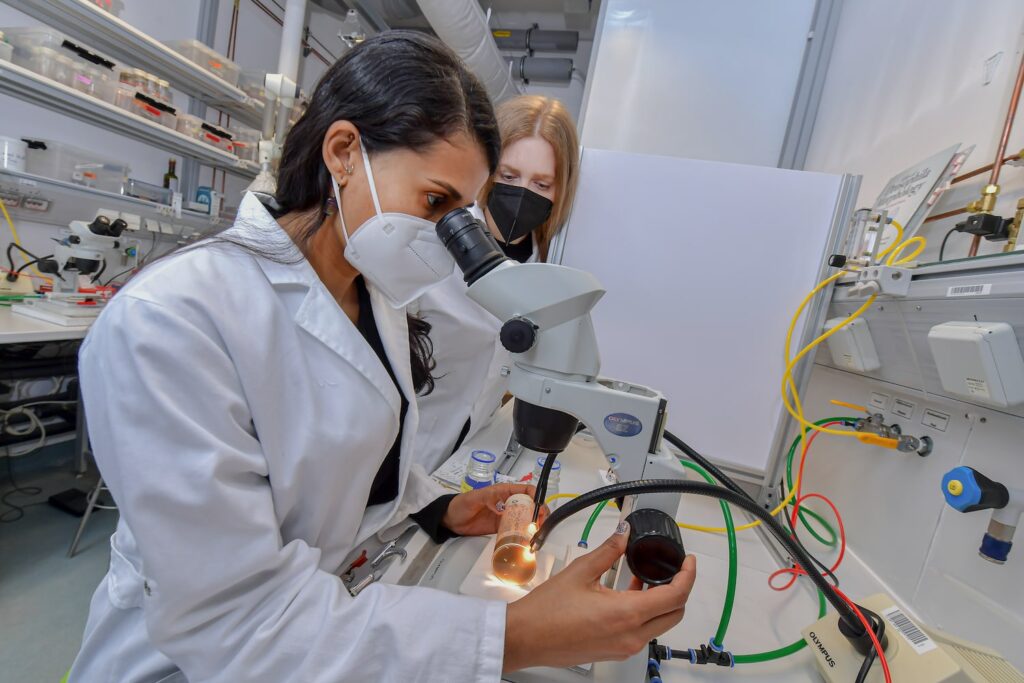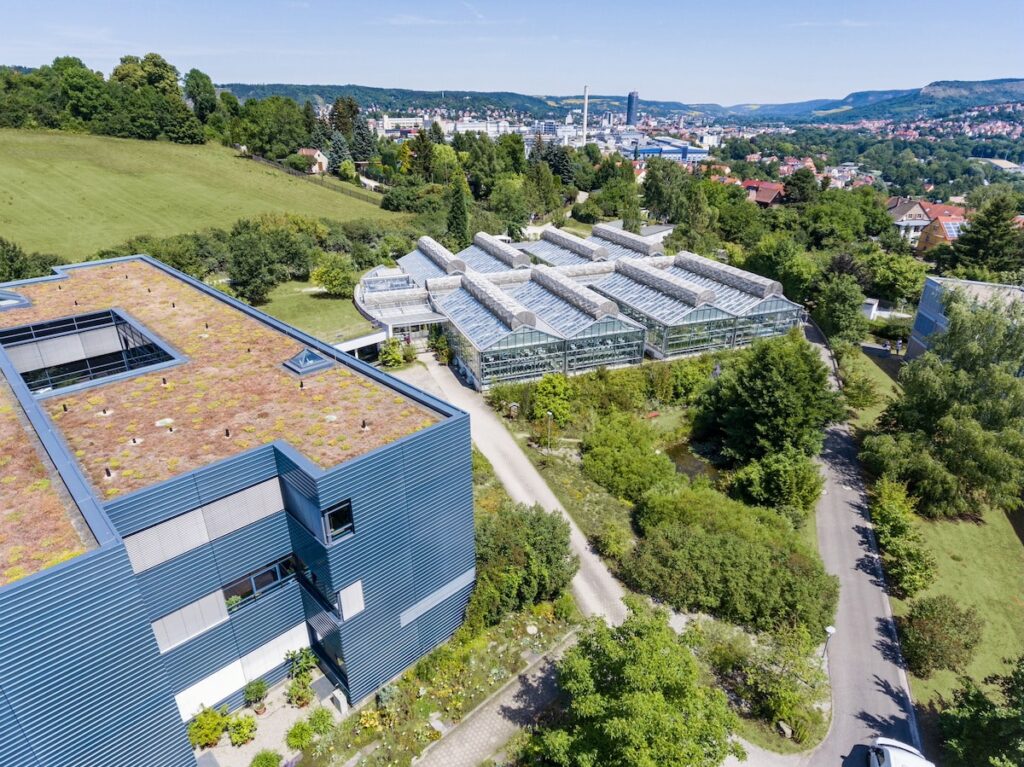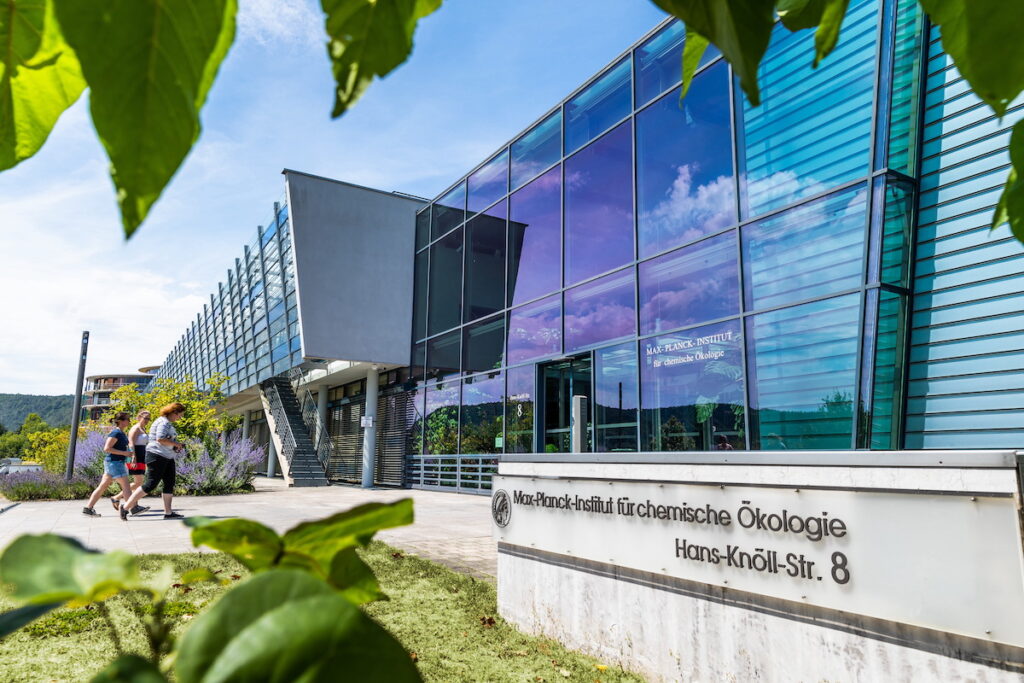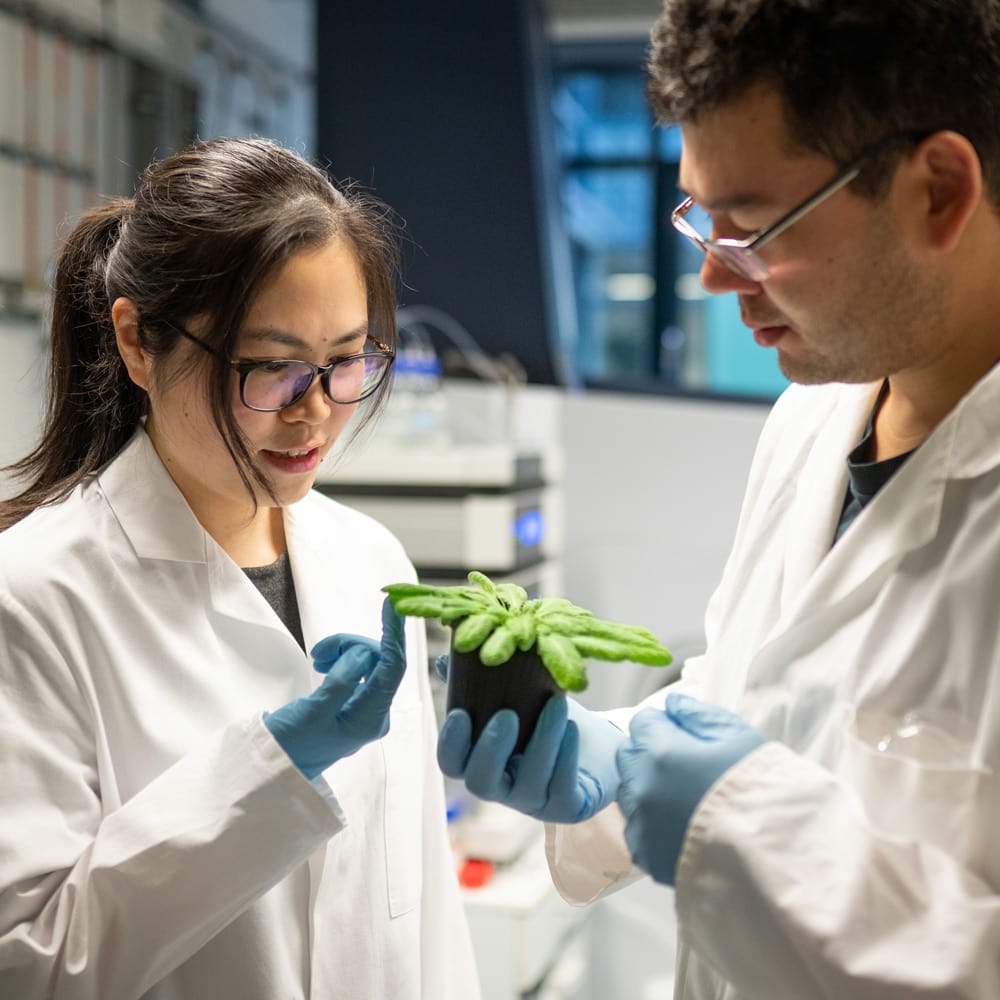Max Planck Institute for Chemical Ecology
At a glance:
The Max Planck Institute for Chemical Ecology researches the role, variety and properties of chemical signals that control the interactions between living organisms and their environment. We want to find out how these interactions affect the evolution and behaviour of these living organisms.
The aim of the Max Planck Institute for Chemical Ecology is to obtain fundamental insights into the chemical communication between plants, insects and micro-organisms and understand how these aspects influence the development of an individual living organism but also the evolution of species. We also seek to understand the processes that take place inside insects’ brains and that control their behaviour.
For the most part, plants live their lives rooted to the spot. This forces them to adopt effective strategies to ensure the spread of their DNA. We are investigating how plants best adapt to their current environment and which chemical signalling substances they produce, for example, to attract pollinators, fight off herbivores and pathogens, or distance undesirable competitors.
Over the course of evolution, insects have adapted to plants’ survival strategies. We are therefore analysing the genetics, physiology and behaviour of plant-eating insects. Insects, however, also make use of plant-based substances to protect themselves from predators. They store poisonous substances, and many use their flamboyant colouring to signal to would-be predators to stay away.
Microorganisms play a significant role in the health of plants and insects. Some are pathogens; others assist with nutrient supply, or protect against diseases and boost defence mechanisms. Here, too, it is important to research who plays which role.
Insects’ gustatory and olfactory perception is an area of particular interest. We are investigating how insects perceive the fragrance language of plants and other insects and how this influences their behaviour when they are looking for food, a sexual partner or the ideal oviposition site for their offspring.
At the Max Planck Institute for Chemical Ecology, around 150 researchers from almost 40 countries work in five scientific departments and seven research groups. In addition, the Institute has a centralised scientific service in mass spectrometry, NMR, high-resolution microscopy and biostatistics. The technological set-up includes three research greenhouses and a wind tunnel facility for behavioural experiments. The Institute runs scientific collaborations with partner institutions from over 30 countries, including the Max Planck Center on next Generation Insect Chemical Ecology, which is dedicated to the issue of how climate change and air pollution affect insects’ ecosystem services. In collaboration with the Friedrich Schiller University, we support emerging researchers within the framework of a structured programme, the International Max Planck Research School “Chemical Communication in Ecological Systems”.




